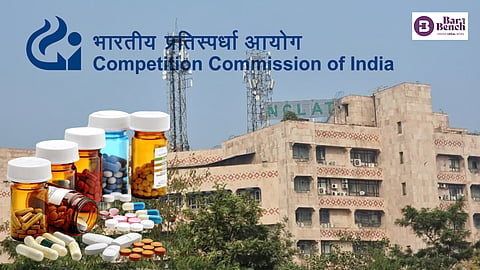CCI can't probe anti-competitive conduct involving patented drugs: NCLAT
The National Company Law Appellate Tribunal (NCLAT) on Thursday ruled that the Competition Commission of India (CCI) has no jurisdiction to examine anti-competitive conduct in respect of patented pharmaceutical products, holding that such issues fall squarely within the domain of the Patents Act, 1970. [Swapna Dey v. CCI]
A coram of Justice Yogesh Khanna (Judicial Member) and Ajai Das Mehrotra (Technical Member) delivered the ruling while dismissing an appeal filed by Swapan Dey, Chief Executive Officer of a hospital operating under the Pradhan Mantri National Dialysis Programme, against a 2022 order of the CCI that had closed his complaint against Swiss drugmaker Vifor International AG.
Dey had approached the CCI alleging that Vifor, the patent holder for Ferric Carboxymaltose (FCM) - an injectable used for treatment of iron-deficiency anaemia - had abused its dominant position by limiting supply and keeping prices high, rendering the drug inaccessible to patients. He claimed that this amounted to violations of Sections 3 and 4 of the Competition Act, 2002.
The CCI, however, found no merit in the allegations and dismissed the case under Section 26(2) of the Act, observing that Vifor’s licensing arrangements with Indian companies Emcure and Lupin were not unreasonable or anti-competitive. The Commission noted that Vifor’s agreements were of short duration and that the company had not restricted its licensees from competing in the market.
On appeal, the NCLAT upheld the CCI’s view but went further to hold that the Competition Act does not override the Patents Act when the alleged abuse arises out of the exercise of patent rights.
“It is apparent that the CCI lacks the power to examine the allegations made against Vifor International (AG). The Patent Act will prevail over the Competition Act in the facts of this case, as the subject matter of contention is FCM, which was developed and patented by Respondent No. 2,” the Appellate Tribunal held.
The Tribunal also noted that the Supreme Court, on September 2, 2025, had dismissed the CCI’s appeal against the Delhi High Court’s ruling, thereby affirming that the CCI “has no power to conduct the investigation that was impugned.”
Referring to Section 3(5) of the Competition Act, the NCLAT underlined that the provision expressly safeguards the right of patent holders to impose reasonable conditions necessary for the protection of their intellectual property.
Observing that the patent on FCM expired in October 2023, the coram concluded that the molecule had since entered the public domain and was freely available for manufacture, leaving no scope for intervention under competition law.
“Following the judicial guidance as noted above, we hold that there is no merit in this appeal. Accordingly, the appeal is dismissed,” the Tribunal declared.
The appellant was represented by Advocate Rohit Arora.
The CCI was represented by Advocate N Raja Singh.
Vifor International AG was represented by Senior Advocate Vaibhav Gaggar with Advocates Pravin Anand, Vaishali K Mittal and Siddhant Chamola, Gitanjali Sharma, Ambika Singh and Abhishek Nair.

